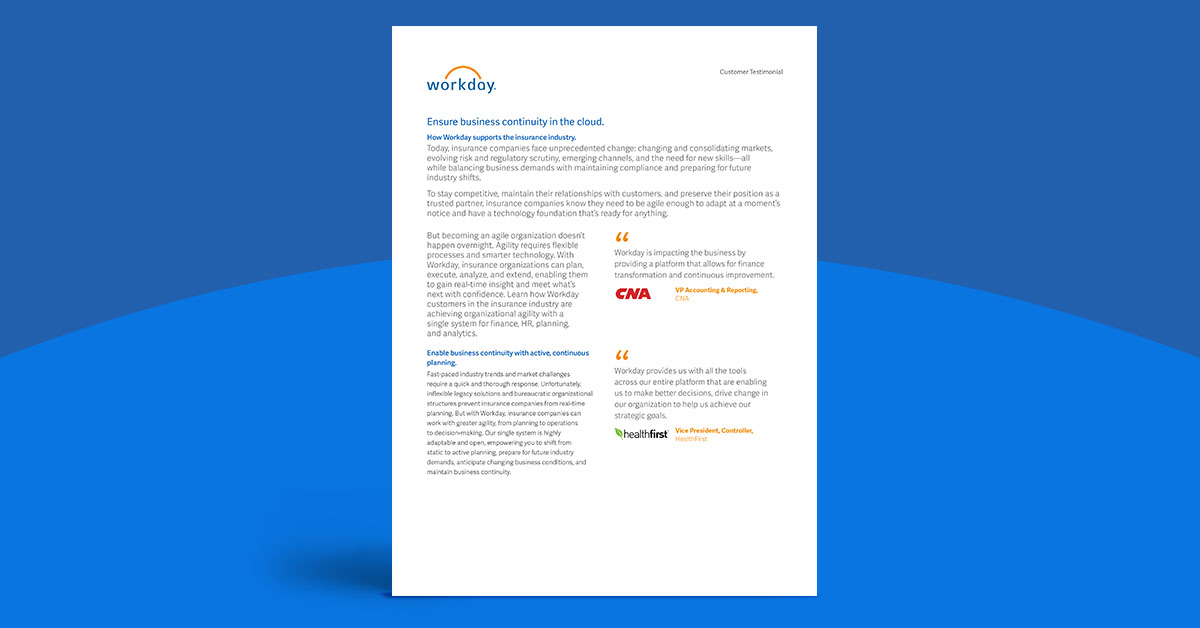
Introduction
With the rapid advancement of technology, the insurance industry has been undergoing a significant transformation. Insurance companies are now adapting to new era solutions to meet evolving customer needs and stay competitive. Understanding the changing landscape of insurance solutions is crucial for businesses in this industry to thrive.
Understanding the changing landscape of insurance solutions
As customer demands and expectations change, insurance companies must keep up with the latest trends and innovations. New era solutions include digital platforms, artificial intelligence, data analytics, and personalized customer experiences. These technologies enable insurers to streamline operations, enhance customer interactions, and offer tailored products and services. Embracing these advancements is essential for staying relevant in today’s fast-paced and digital-driven market.
Benefits of adapting to new era solutions
By adapting to new era solutions, insurance companies can unlock various benefits:
- Improved efficiency: Implementing digital platforms and automation tools reduces the time and effort required for manual processes, resulting in improved operational efficiency and cost savings.
- Enhanced customer experience: New technologies allow insurers to offer personalized and seamless customer experiences. From simplified onboarding processes to real-time claims processing, customers enjoy convenience and satisfaction.
- Greater risk assessment accuracy: Data analytics and artificial intelligence enable insurers to gather and analyze vast amounts of data to make more accurate risk assessments. This helps in pricing insurance policies and preventing fraud.
- Increased competitiveness: Embracing new era solutions sets insurance companies apart from their competitors. It allows them to provide innovative products and services, attract new customers, and retain existing ones.
Adapting to the new era of insurance solutions is essential for insurers who want to stay ahead of the curve and thrive in today’s rapidly changing market. By leveraging technology and embracing innovation, insurance companies can create a competitive edge and deliver value to their customers.
Technological Advancements
The role of technology in improving insurance solutions
In today’s fast-paced digital age, the insurance industry is rapidly evolving to meet the changing needs and expectations of customers. Advancements in technology have played a crucial role in this transformation, offering innovative solutions for insurers and policyholders alike.
Technology has enabled insurers to streamline their operations, automate processes, and provide more personalized and efficient services to customers. With the help of digital platforms, insurance companies can offer online quotes, claims processing, and policy management, making the entire experience faster and more convenient for policyholders.
Furthermore, technology has facilitated the integration of data analytics and predictive modeling in the insurance sector. By leveraging big data and analytics tools, insurers can analyze vast amounts of information to better assess risks, detect fraud, and tailor their products to meet customer demands.
Integration of artificial intelligence and machine learning
Artificial intelligence (AI) and machine learning (ML) are revolutionizing the insurance industry. These technologies have the potential to enhance underwriting processes, automate claims handling, and improve fraud detection.
AI-powered chatbots are being used to provide customers with instant support, answer queries, and assist with policy-related information, ensuring a seamless customer experience.
Machine learning algorithms can analyze patterns and historical data to detect potential risks and predict future outcomes, enabling insurers to make more accurate and informed decisions.
As the insurance industry adapts to the new era of technological advancements, customers can benefit from more personalized policies, faster claims processing, and improved overall service. With the integration of AI and ML, insurers can provide better risk assessment and mitigation, leading to a more efficient and sustainable insurance market.
Personalization and Customization
In the new era of insurance solutions, personalization and customization are becoming increasingly important. Insurance companies are recognizing the need to tailor their offerings to individual needs, rather than providing one-size-fits-all coverage. This shift is driven by the desire to better meet customers’ expectations and improve their overall experience.
Tailoring insurance solutions to individual needs
Insurance companies are now focusing on understanding their customers on a deeper level. By gathering data and utilizing advanced analytics, they can identify the unique risks and requirements of each individual. This enables them to offer personalized insurance plans that are specific to their customers’ needs. Whether it’s home, auto, health, or life insurance, companies are finding ways to create customized solutions that provide the right level of coverage for each customer.
Benefits of personalized insurance plans
Personalized insurance plans offer several benefits. Firstly, customers receive coverage that is tailored to their specific needs, ensuring they are adequately protected. Secondly, these plans can often be more cost-effective and efficient, as customers are not paying for unnecessary coverage. Lastly, personalized insurance plans enhance customer satisfaction and loyalty, as individuals feel that their unique needs are being met.
In summary, the new era of insurance solutions is all about personalization and customization. By tailoring insurance plans to individual needs, insurance companies can better meet customer expectations, provide more cost-effective coverage, and ultimately enhance overall customer satisfaction.
Digital Transformation
The impact of digitalization on the insurance industry
The insurance industry is undergoing a major transformation with the advent of digitalization. Traditional processes are being replaced with innovative technologies that have revolutionized how insurance companies operate. This shift towards digital solutions has resulted in improved efficiency, cost savings, and enhanced customer experiences. From online policy purchases to claims processing, digitalization has made insurance services more accessible and convenient for customers.
Digital platforms and applications for streamlined processes
To adapt to the new era of insurance solutions, companies are leveraging digital platforms and applications to streamline their processes. This includes utilizing advanced data analytics for risk assessment, implementing artificial intelligence for customer service automation, and adopting mobile apps for seamless policy management. These digital tools not only improve operational efficiency but also provide customers with personalized experiences and real-time access to insurance information.
By embracing digital transformation, insurance companies can stay competitive in an evolving marketplace. The ability to offer convenient, efficient, and customer-centric services through digital channels is becoming crucial for success in the industry. As technology continues to advance, insurance companies must continue to adapt and innovate to meet the changing needs and expectations of their customers.
Risk Assessment and Management
Utilizing data analytics for accurate risk assessment
To adapt to the new era of insurance solutions, companies need to leverage the power of data analytics. By analyzing large volumes of data, insurers can gain insights into customer behavior, market trends, and potential risks. This allows them to assess risks more accurately and make better-informed decisions when pricing policies and determining coverage.
Implementing proactive risk management strategies
In addition to accurate risk assessment, insurers must also focus on proactive risk management strategies. This involves identifying potential risks before they occur and taking preventative measures to mitigate their impact. By investing in technologies such as artificial intelligence and machine learning, insurers can identify patterns and trends that indicate potential risks. This enables them to develop tailored risk management strategies and reduce the likelihood of claims and losses.
By adopting data analytics and proactive risk management strategies, insurance companies can stay ahead of the curve in the evolving landscape. These approaches not only enhance the accuracy of risk assessment but also enable insurers to provide more personalized and comprehensive coverage to their customers. It’s crucial for insurers to embrace these new tools and techniques to deliver efficient and effective insurance solutions in the modern era.
Enhanced Customer Experience
Improving customer satisfaction through digital solutions
Adapting to the new era of insurance solutions means embracing digital technologies to enhance customer experience. From online policy purchases to mobile claim filing, these digital solutions provide convenience and speed for customers. With self-service options and personalized online portals, insurers can improve customer satisfaction by allowing policyholders to manage their policies and claims easily.
Efficient communication and accessibility
Digital solutions also enable insurers to communicate with customers more efficiently. With features like chatbots and automated workflows, insurers can provide quick and accurate responses to customer queries. Additionally, digital platforms allow customers to access information and services anytime and anywhere, eliminating the need for lengthy phone calls or in-person meetings. This level of accessibility enhances the overall customer experience and streamlines the insurance process for both parties.
In summary, adapting to the new era of insurance solutions involves leveraging digital technologies to enhance customer experience. By providing digital solutions that improve customer satisfaction and enable efficient communication and accessibility, insurers can stay ahead of the curve and meet the evolving needs of today’s customers.

Regulation and Compliance
Adapting to changing regulatory requirements
In the ever-evolving world of insurance solutions, keeping up with changing regulatory requirements is crucial. Insurance companies must adapt their business processes and practices to comply with the latest rules and regulations. Staying informed about new regulations, investing in technology and automation, and establishing effective compliance management systems are key strategies to ensure adherence to regulatory changes.
Ensuring compliance in the new era of insurance solutions
With the rise of innovative insurance solutions, compliance becomes even more important. Companies must navigate the complexities of new technologies, such as artificial intelligence and blockchain, while remaining compliant with industry standards. Implementing robust data protection measures, conducting regular risk assessments, and fostering a culture of compliance are essential for insurance companies to thrive in the new era of insurance solutions.
Collaboration and Partnerships
In the ever-evolving world of insurance solutions, it is crucial for companies to adapt and embrace the new era. This entails exploring collaboration and forming strategic partnerships to stay ahead of the competition and better serve their customers.
The importance of strategic partnerships in insurance
Strategic partnerships in the insurance industry offer numerous benefits. These partnerships allow companies to leverage each other’s strengths, access new markets, and provide comprehensive solutions to customers. By pooling resources and expertise, companies can enhance their capabilities and offer innovative products and services that meet the evolving needs of policyholders.
Collaborating with tech startups and insurtech companies
Embracing technology and collaborating with tech startups and insurtech companies is imperative in the new era of insurance solutions. These collaborations enable traditional insurance companies to tap into technological advancements and digital platforms, enhancing their operational efficiencies, customer experience, and product offerings. The innovative mindset of tech startups and insurtech companies brings fresh perspectives and creative solutions to the table, driving industry-wide innovation and transformation.
In conclusion, adapting to the new era of insurance solutions requires collaboration and partnerships. Strategic partnerships allow companies to leverage each other’s strengths and provide comprehensive solutions to customers. Collaborating with tech startups and insurtech companies brings innovation and fresh perspectives to the industry. By embracing these opportunities, insurance companies can stay relevant, competitive, and better meet the evolving needs of their customers.
Conclusion
As technology continues to evolve, the insurance industry must adapt to stay relevant and competitive. Embracing innovation in insurance solutions is crucial for long-term success. By implementing new technologies, such as artificial intelligence and data analytics, insurers can streamline processes, improve customer experience, and stay ahead of the curve. It is essential for insurance companies to keep up with changing customer expectations and market trends to thrive in the new era. With a forward-thinking mindset and a commitment to embracing innovation, insurance companies can position themselves for long-term success in the ever-evolving insurance landscape.


